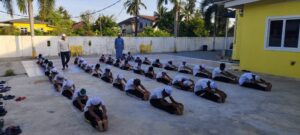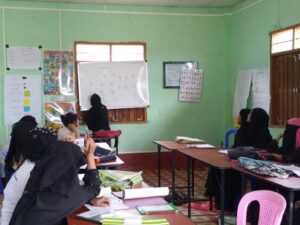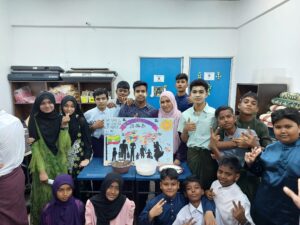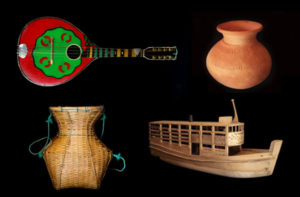In the refugee camps of Cox’s Bazar, Bangladesh, sports activities have become an essential part of the support system for Rohingya children, offering a vital outlet for physical activity, emotional expression, and community-building. For children who have endured extreme hardship and trauma due to displacement and violence, participating in sports provides a much-needed opportunity to regain a sense of normalcy, joy, and hope.
Sports programs in the camps are organized by humanitarian organizations like UNICEF, local NGOs, and volunteers, and they include a variety of activities such as football (soccer), volleyball, basketball, running races, and traditional games. These activities are not only fun but also help promote teamwork, discipline, and leadership skills among the children.
For many of the Rohingya children, sports offer a positive distraction from the harsh realities of camp life. Physical activity helps them release pent-up energy and stress, while fostering a sense of accomplishment and self-esteem. Through friendly competitions and collaborative team sports, children learn important social skills, such as cooperation, communication, and empathy.
Beyond the physical and social benefits, sports programs also serve as a tool for mental health. Many of the children have witnessed or experienced extreme violence, and the psychological impact of such trauma can be overwhelming. Sports provide a safe, structured environment where children can temporarily escape the emotional weight of their experiences. The camaraderie of team sports and the joy of physical movement help combat feelings of isolation and anxiety, allowing children to express their emotions in a healthy and productive way.
In some camps, sports events and tournaments are organized to bring together children from different shelters or communities within the camp, encouraging a sense of unity and collective spirit. These events often attract large audiences, with families and camp residents coming together to cheer on the young athletes, creating a positive and supportive atmosphere.
Sports activities also help to break down cultural and social barriers within the refugee population. Children from diverse backgrounds and regions within the Rohingya community can come together on the playing field, fostering cross-cultural understanding and friendship.
UNICEF and other organizations working in the camps recognize the importance of sports and physical activities as a core element of child protection and well-being. These activities are integrated into the broader humanitarian response to ensure that children not only receive the basic necessities of life, such as food, water, and shelter, but also the emotional and social support needed to heal and thrive.
By promoting sports as a means of empowerment and healing, these programs are helping to create a brighter future for Rohingya children, encouraging resilience and offering them the tools to face the challenges of displacement with strength, hope, and determination.





